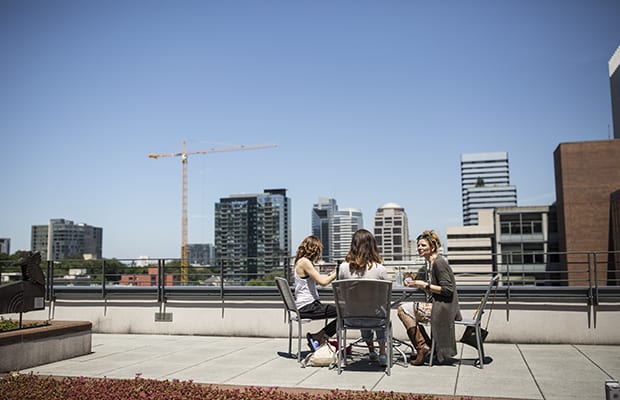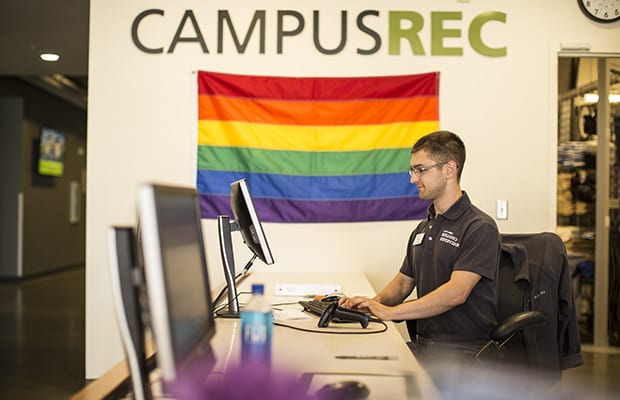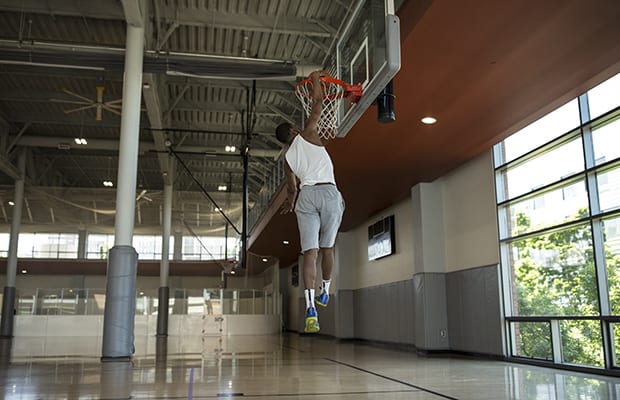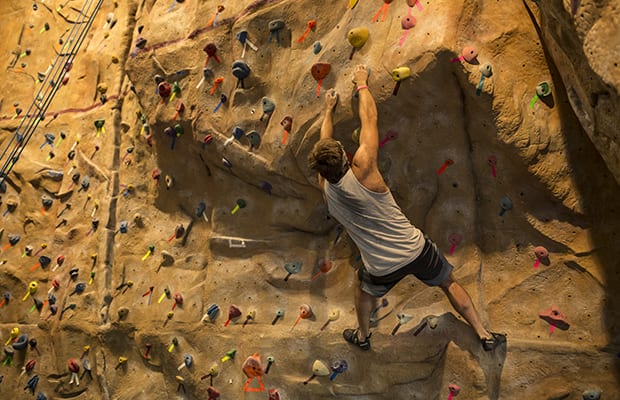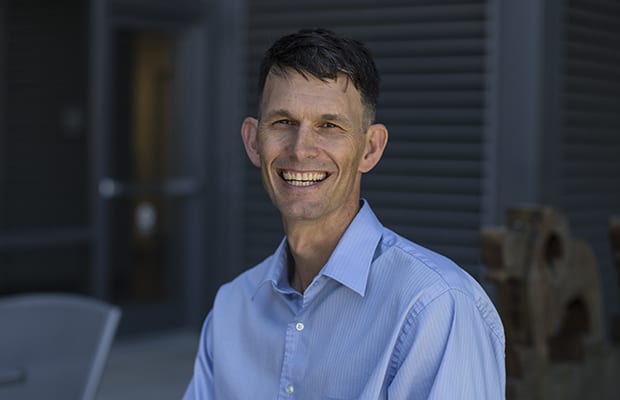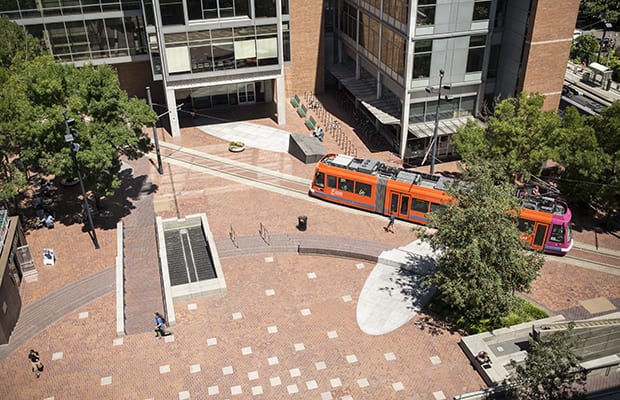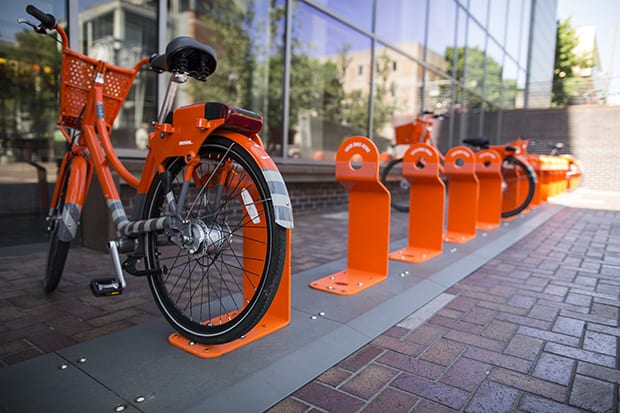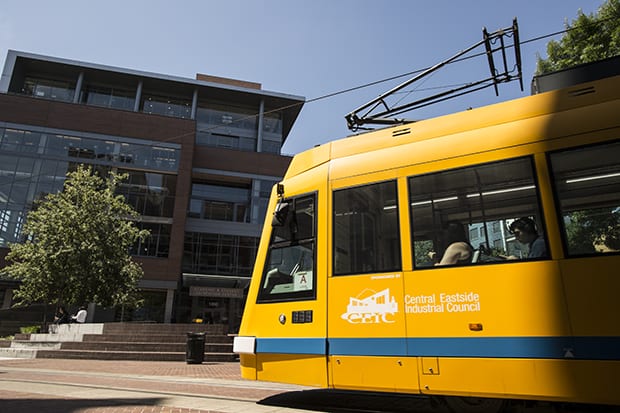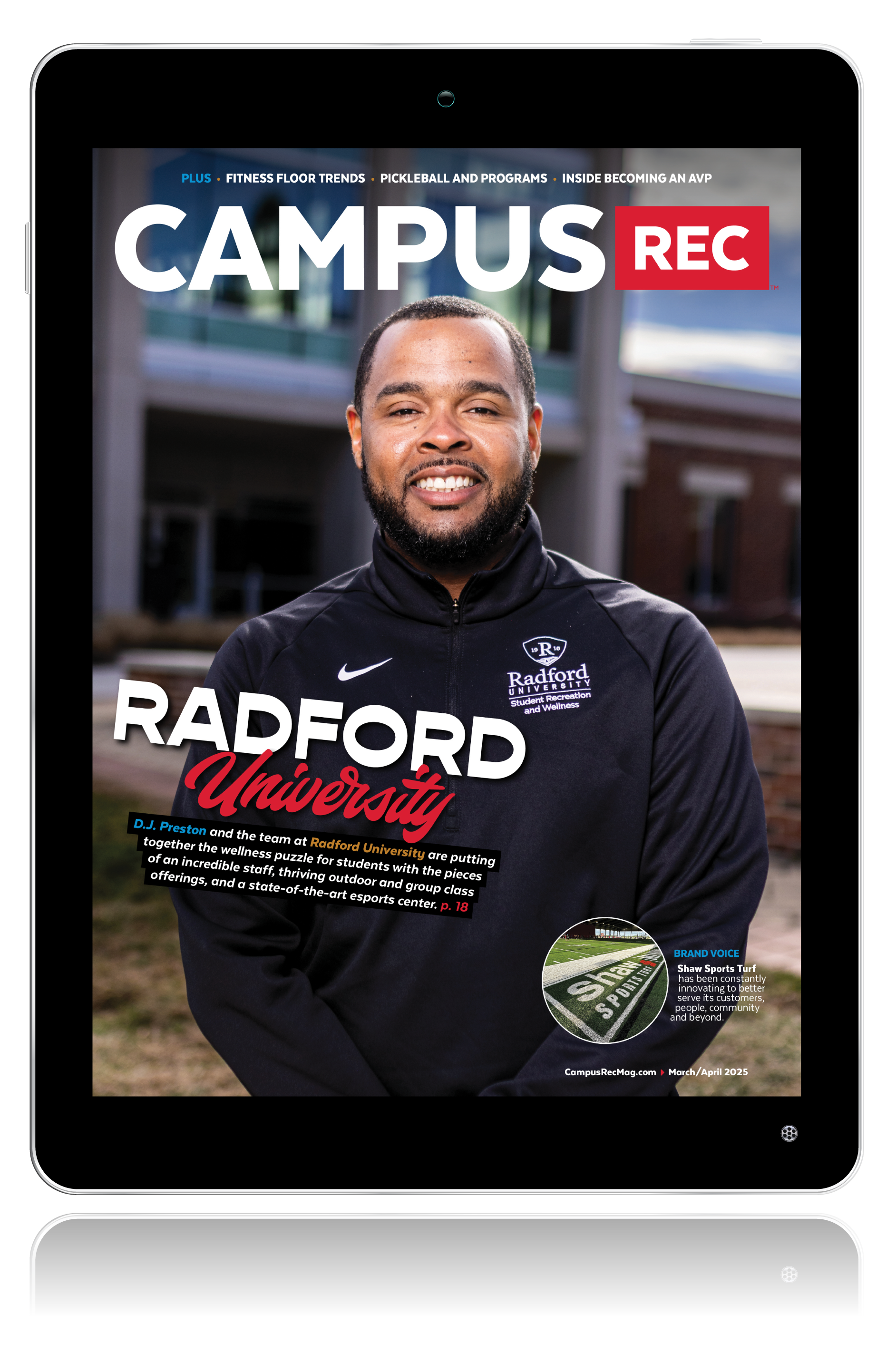There is a lot that makes Portland, Oregon, unique. It is one of two cities in the U.S. to have a dormant volcano within the city limits. The city’s name was decided in a coin toss. Portland has more bicyclists per capita than any other city in the U.S. The city is also home to the world’s smallest park, Mill Ends Park, which is about two feet across.
Staying true to the city’s culture, it is only fitting that the Portland State University (PSU) Department of Campus Rec provides the same unparalleled character. Over the past decade Campus Rec at the university has developed and expanded substantially, all the while pushing boundaries and thinking outside of the box.
Prior to the construction of the Student Rec Center in 2010, health and fitness options at the university were limited. Alex Accetta, the Assistant Vice President for Campus Recreation and Student Unions at PSU, explained, “There was a gym and people would bring a ball and they would just let them play,” he said. However, soon students began to expect more when it came to fitness and wellness on campus. They expressed a desire for superior spaces to exercise and take care of themselves.
Accetta first joined the PSU team with hopes of working in the outdoor program. “I really wanted to be an outdoor program leader. When I got my first job at Portland State, I was told that we were building a rock wall and that I would help manage our outdoor program,” he said. “I was hired to be the recreation and academic student group coordinator. Quickly though, I realized that there was a much greater need at PSU. I was redirected into the process of running the referendum to build a new student rec center, dashing my involvement in the outdoors, but leading to a great career in collegiate recreation.”
A huge part of this need for enhanced health and wellness offerings revolved around space. A student referendum was passed to allow for the construction of a new facility, the Student Rec Center. Throughout the designing of the facility, implementation of programming and development of policies, inclusivity remained the guiding focus.
Universal Design
Today, an increasing number of campus recreation facilities are starting to focus on universal design — creating buildings that are welcoming to everyone. However, back in 2010 when the PSU Student Rec Center opened, this was not the norm. PSU has been paving the way in developing gender-inclusive spaces and serving the needs of all students.
“We designed the facility to have universal design. That is where we planted our flag,” explained Accetta. “We wanted to build a facility in an urban environment that had a lot of elements of inclusivity. We put in multiple all-gender bathrooms and locker rooms. We put in private changing areas in our locker rooms. We hired Jen Armbruster, who we claim as the first full-time collegiate rec adaptive/inclusive coordinator in the country. She helped us learn, or at least make good progress towards creating an environment of inclusivity beyond serving people with physical disabilities.”
When designing the facility, the department made a point to think about all students. How would they feel in these spaces and what would deter them from participating in any way? A prime example of this is the rock-climbing wall. As Accetta explained, many facilities place the climbing wall in the front of the building, as a showcase piece. But this is not the case at PSU.
“We put our climbing center away from the entrance so people could climb with a little more privacy as they learned,” said Accetta. “When climbing you are exposed a lot. You fail a lot. Many times the climbing centers are in the front of the building, but I think it provides some barriers for people really being able to get into the activity, because it is so high-profile.”
Inclusive Programming
One of the most intimidating spaces in a recreation center is the pool. As Craig Gosnell, the Aquatics and Safety Coordinator at PSU explained, the pool could be a scary place since your body is exposed and you have to go through a gendered locker room. But in accordance with the mission of PSU Campus Rec, they wanted to create an environment that is welcoming and safe for all students.
“One of the things I did when I first got here was focus on who is using the aquatic space and who is not,” said Gosnell. “What are we offering, why are we offering it, who is coming and who is not? I put a lot of energy into diversifying our programming, our marketing and even the signage around the pool to create a brave space for all people to come, swim and play.”
A perfect example of this inclusivity is the Sound Waves Pool Party Pride event that Gosnell and the PSU Campus Rec team hosted last spring. The goal of the event was to celebrate Pride on Portland’s campus, as well as create an inclusive space in the Rec Center for all students. Poison Waters, Portland’s most popular drag queen and entertainer, hosted the event. The Sound Waves Pool Party also featured a DJ, laser light show, free food, photo booth and much more. The event was a huge success, drawing around 450 students.
According to Gosnell, the event would not have been possible without campus partners. He worked with the Women’s Resource Center, Queer Resource Center and Student Health and Counseling. “Especially for this event, the relationship with the Queer Resource Center is what made it successful,” he explained. “If we did not have their buy-in, we would just be stepping on their toes, and they have so many connections across campus.”
From programs like the Sound Waves Pride event to women’s-only swim and fearful swimmers clinics, the Campus Rec department puts thought and time into all of their programs, making sure they foster this notion of inclusivity.
Creative Policies
As Accetta explained, it is the goal of the Campus Rec staff to break down barriers to access. They want all students to feel comfortable coming to the Student Rec Center. There should be no reason they feel un-welcome, which has led to the development of certain innovative policies.
“I am not afraid to risk doing things differently than how best practice says you should,” added Accetta. “It seems silly, but a good example is our policy of allowing people to wear jeans, boots, or street clothes when they exercise. That isn’t the ‘best practice,’ but it made a lot of sense for us to do it.”
Innovative Marketing
PSU Campus Rec considers even the smallest details when it comes to fostering an inclusive environment — this includes the naming of programming and departments. What is traditionally called Club Sports at other colleges and universities is called Rec Clubs at PSU. According to Accetta, they decided on this name because they felt Club Sports had a limiting connotation to it.
“There is sports culture in Portland, but there is much more of a recreational culture,” said Accetta. “I wanted us to be viewed as a place where you can do all sorts of different exercise and be healthy. If it were only Club Sports, then it would be all about sports. But there are communities that are recreational in nature, such as dance, and I think they should be part of a campus rec endeavor.”
Rec Sports at PSU range from the traditional sports like baseball, soccer and lacrosse, to the unconventional such as Latina Dance Club, Hip-Hop Alliance, Running Around Portland and Tango. Rec Clubs are also not required to compete inter-collegiately.
PSU Campus Rec has made it a priority to completely embody the mission of the industry. The department is a perfect example of how you do not need a massive facility or expansive space in order to foster healthy habits among students. What it really comes down to is: How are you changing the lives of the campus community?
“It is the small things. But it works really well on our campus,” said Accetta. “These are just different ways of doing things, not better or worse, just different.”





